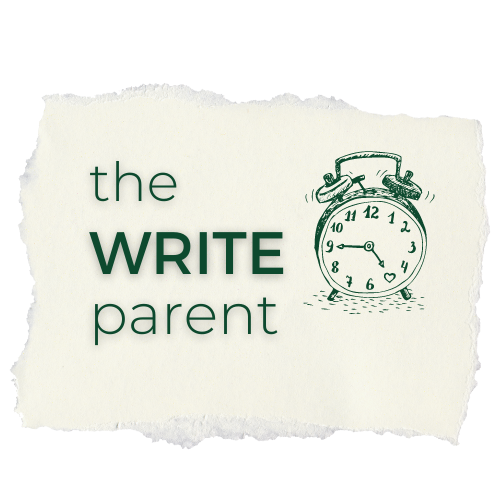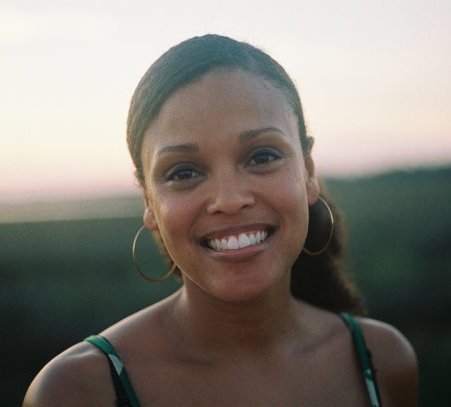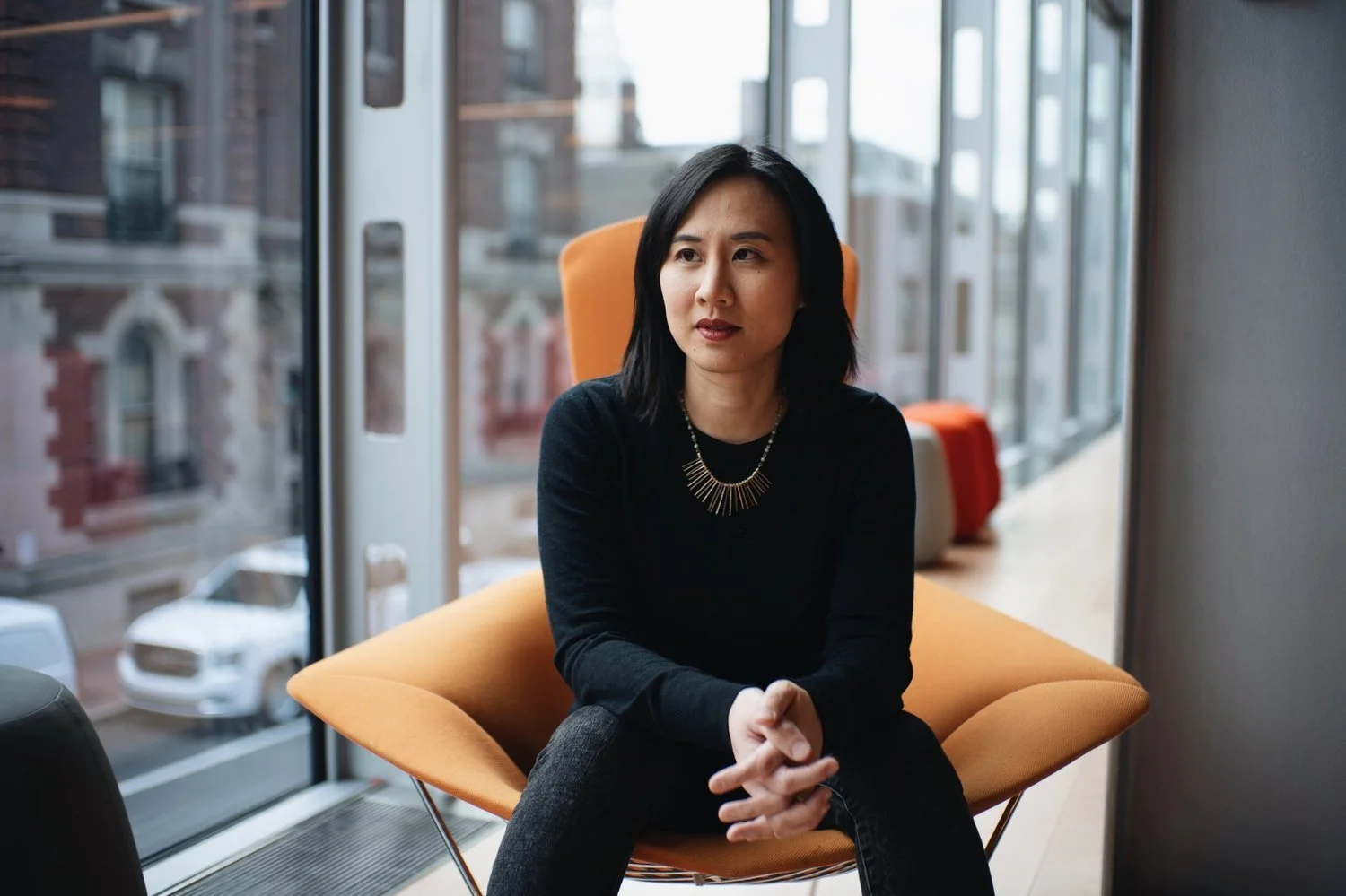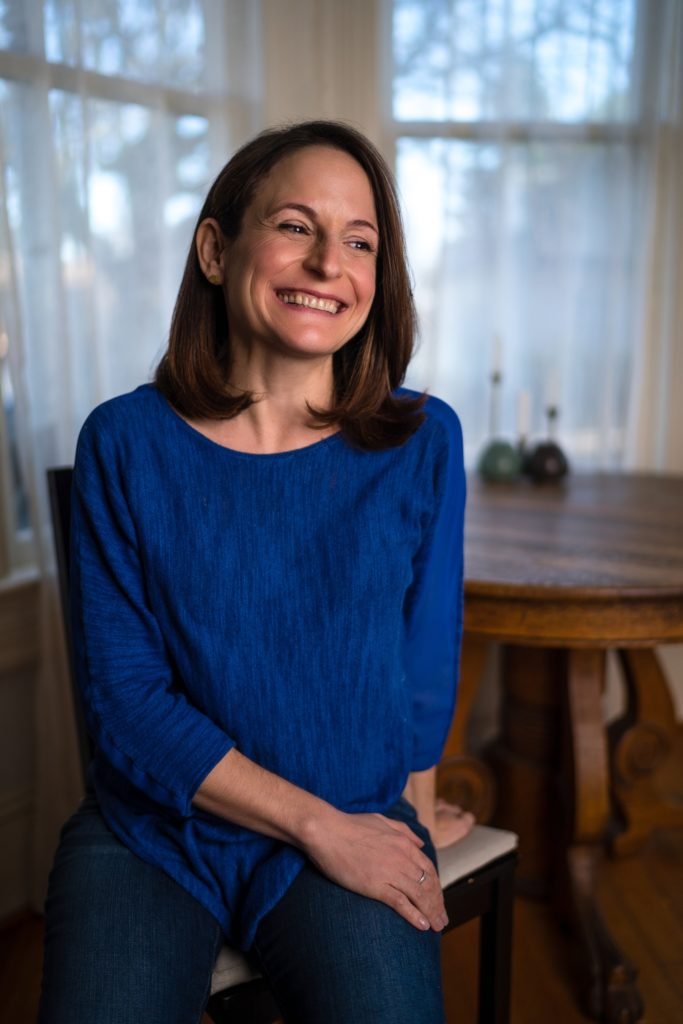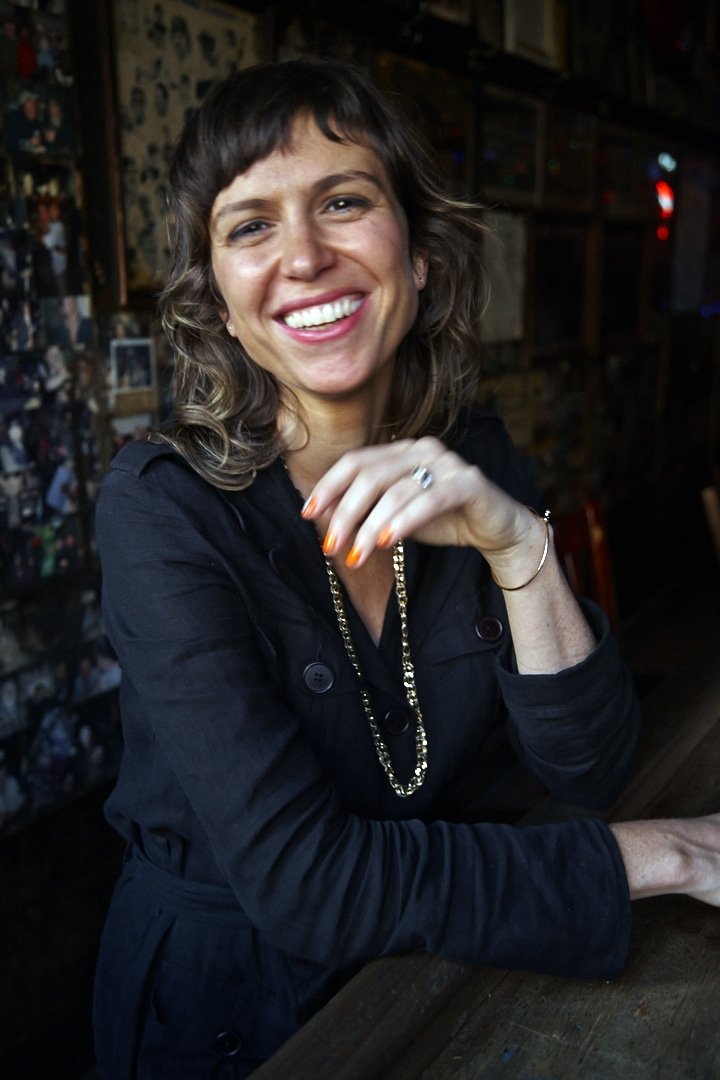Redefining Sexy
Photo description: this writer-mom with her mask down, feeling sexy before a Sir Elton concert!
I’ve been thinking a lot lately about motherhood and sexuality. How they inform one another, how they can feel at odds. How mothers can embrace their sexuality in a world that values glittery youth and tight skin—and women who don’t walk around with spit up on their shirts.
I’ve especially been considering these topics through the lens of a writer-mom as I write in sweatpants, bleary-eyed, fingers aching from speed typing in the minutes before I pick up my daughter from school.
I think about how “mom” can sometimes feel synonymous with “done” and wonder who the hell put that idea into my head.
Maybe it started when I developed an abscess behind my C-section scar and couldn’t shit for a week.
Or, before that, during the nine months when my body, hard at work sculpting a human, was stretched and tugged in too many places at once.
Or even millennia ago, when society decided to conflate motherhood with sanctitude and celibacy (because, I mean, naturally).
Mary, the fruit-bearing, lactating Virgin. No way could she have loved her legs or had a sexy pout, a come-hither look. She had to give birth to Jesus Christ, for God’s sake! And raise him with utmost care and devotion to ensure he lived long enough to be sacrificed! How on earth could a woman with pleasure of her own who insisted on her individuality be a fitting mother for the lamb of God?
As soon as a woman births a baby (nay, conceives a baby), the world tells her—and we sometimes tell ourselves—that her primary role is no longer that of independent woman but of caretaker, and caretakers need not be alluring or have agency of their own.
Mothers’ identities must be reshaped, just as their bodies were, and subsumed into their children’s identities.
Of course it is complicated. We are tied to our children: literally at the outset, and metaphorically as time marches on and we worry over their wellbeing.
But we are ourselves, too. We are the same fierce, sexy, autonomous women we were before our identities expanded to include the role of mother.
Thankfully, times have changed since the turn of the first millennium. Many sexy mama goddesses strut their stuff today: Beyoncé, Former First Lady Michelle Obama, Salma Hayek, Gillian Anderson, Gillian Anderson’s character in Sex Education, Dr. Jean Milburn, who makes me want to bathe in champagne and wear jewel-toned trouser suits… the list is long.
They remind us “mom” does not in fact mean “done,” and that women who’ve birthed babies can still lead nations, command respect, demand attention, and/or twerk with the best of them.
While I bow to these inimitable queens, they do represent a privileged class of celebrity with millions of followers, millions of dollars, or both.
We should not forget that millions of women are raising kids on much less than millions and without the world’s veneration. They are sexy mama goddesses, too—and many of them are sexy mama goddesses who are also writers.
As a writer-mom myself, I find inspiration in women who manage to write brilliant pages while raising whole little human beings—and while owning that lactation stain on their button-down as they apply their power shade of red lipstick.
I strive each day to be more like them: wholeheartedly loving my daughter yet insisting on my independence, multi-layered identity, and sexuality.
In honor of Women’s History Month—but certainly not limited to this month—I’m celebrating nine inspiring writer-moms who raise and love their children while embracing their identities, passions, and careers. (Because what, my friends, is sexier than that?)
Zadie Smith: novelist, essayist, short story writer, professor
Photo by Dominique Nabokov. Source: Author’s Website
Okay, she’s one of the more famous I’ve included. But no way could I neglect to mention my favorite contemporary writer, who is nothing short of masterful at weaving style, wit, intellect, and wisdom into her sentences and her life.
If you want your mind expanded and blooming, listen to any of her enlightening interviews. (This one with Ann Patchett is great, and so is her discussion with Michael Chabon and Ira Glass.)
Motherhood, Identity, & Art, in her words: “I remember when I was pregnant with my first child: I was at a book festival and a writer of my own age, who will remain nameless, sat opposite me and said, ‘God you’re having a kid huh?’ It was a man. He said, ‘I guess you’re going to lose a lot of time and you must be worried about falling behind.’ I was about seven months pregnant, and I just had a sudden inspiration. I said, ‘Yeah I guess so’ and then, ‘You must be worried about just a complete lack of human experience that you’re now going to be 40 and then 50.’ His face went so pale. It was a wonderful way to frighten him back.” [Read Isaac Chotiner’s interview with ZS in Slate.]
Read this: On Beauty (Then quickly follow it by reading everything she’s ever written.)
Lauren Groff: novelist and short story writer
Photo by Eli Sinkus. Source: Author’s Website
To be fair, based on interviews I’ve read in which Lauren Groff discusses the relationship between motherhood and work, she might not appreciate being on this list. But, I find inspiration in Groff’s stunning prose and in her insistence that women not be the only ones asked how they balance their career with their parenting. So, I decided to keep her on it!
Motherhood, Identity, & Art, in her words: “I’d made the decision before the boys were born that I was going to feel no guilt or shame about my parenting. I’m a good mother and want to spend as much time as possible with my kids, but I travel a lot, I shut myself away from my family to work every day, I do not do birthday parties, and I went to one play-date in my life and wanted to break the Perrier bottle on the floor and stab myself with it. We have intense conversations in my house about apportioning responsibility, because neither my husband nor I wants to assume roles based on messed-up collective assumptions about gender dynamics. I think that, in our society, the idea of motherhood is pathologically ill, and even well-meaning people assume martyrdom in a mother.” [Read Elissa Strauss’s interview with LG in Slate.]
Read this: Matrix
Aimee Nezhukumatathil: poet, essayist, professor
Photo by Martin Bentsen. Source: Poetry Foundation
Aimee Nezhukumatathil’s language hums on the page; reading her work—rich with texture, imagination, and play—brings a tingly excitement, like unwrapping a box of colorful bonbons.
Born in Chicago to a Filipina mother and a Malayali Indian father, she is a celebrated poet and essayist whose many awards and honors include a Pushcart Prize and a fellowship from the National Endowment for the Arts. She often writes at the intersection of three cultures: Filipino, Indian, and American.
Motherhood, Identity, & Art, in her words: “As someone who moved six different places before she left for college, HOME has always been elusive—but [I] am so happy to find a velvet space for my family and my family’s art here in Oxford [Mississippi]. It has a complicated history to say the least, but I’ve never been more valued and seen and heard than in this beautiful state. And I’m here to fight and push for light and love so that my half-Asian kids also feel like this is a place to feel safe in and to be joyful in—a place to call home for all of us.” [Read the Tin House interview with AN by Eric Farwell.]
Read this: “Are All the Breakups in Your Poems Real?” then World of Wonders: In Praise of Fireflies, Whale Sharks, and Other Astonishments
Jesmyn Ward: novelist, memoirist, professor
Source: Wikipedia
Jesmyn Ward’s lyrical prose carries within it, somehow, all the mystery, terror, beauty, and profound joy of life. She is one of the most gifted writers I’ve read. Her greatest strength might be how closely she examines the dark shadows of our world—racism, poverty, addiction, violence, fear, death—that can be so difficult to face, and how she does so with tenderness and steadfast hope.
A native of the Mississippi Gulf Coast, Ward lived through Hurricane Katrina, a tragedy that finds its way into much of her work. She is the recipient of a MacArthur “Genius” Grant, and two of her novels—Salvage the Bones and Sing, Unburied, Sing—won the National Book Award.
Motherhood, Identity, & Art, in her words: “On the eve of my daughter’s first birthday, I felt as if I’d survived a gauntlet. I’d nursed her to plumpness, become attuned to her breathy cries as she adjusted to life outside my body, learned to follow a checklist whenever she was upset (Hungry? Dirty? Tired? Overstimulated?). When my solutions to the list sometimes did not ease her to calm, I learned to carry her and walk, to say again and again in her ear the same phrase, ‘Mommy’s got you. Mommy’s got you. It’s OK, honey, Mommy’s got you.’ I said it and felt a fierce love in me rush to the rhythm of the words, a sure sincerity. I meant it. I would always hold her, have her, never let her fall.
When I found out I was pregnant again, I was happy. I wanted another child. But that happiness was wound with worry from the beginning: I was anxious about whether I could manage two children, about whether or not I would be able to be a good parent to both my children equally, whether the thick love I felt for my daughter would blanket my other child as well.” [Read Jesmyn Ward’s essay in The Guardian about raising a Black son in the U.S.]
Read this: Sing, Unburied, Sing and her essay in Vanity Fair on her husband’s premature death at the start of the pandemic
Celeste Ng: novelist, short story writer, essayist
Photo by Kieran Kesner. Source: Author’s Website
Celeste Ng is an award-winning and bestselling author, and her talent for writing plot and multiple POVs makes her literary novels page turners. Her first two books have been translated into over 30 languages, and Little Fires Everywhere was adapted into a popular limited series on Hulu starring Reese Witherspoon and Kerry Washington.
She’s a powerful advocate for the necessity of diversity in publishing and in 2020 partnered with the organization We Need Diverse Books to launch an internship grant program aimed at making careers in publishing more accessible to those from traditionally underrepresented groups in the industry.
Motherhood, Identity, & Art, in her words: “I’ve always been drawn to writing about parenting, but the subject resonates particularly deeply because I'm both a mother and a daughter: my mother is still alive, and I have a young son. I find myself looking with a kind of double-vision, both forward and backward at once: How did the mothering I got shape me, and what kind of mother do I want to be as a result?
As is often the case in fiction, there are no one-to-one correspondences between real people and the people on the page — none of the mothers in the book are my mother, and none of the children in the book are my child. But the characters wrestle with a question I ask myself a lot in my own life: How can this little person who came from me be so different, and what on earth do I do with them?” [Read more of CN’s thoughts on motherhood in this NBC News opinion piece.]
Read this: Everything I Never Told You
Karen Russell: novelist, short story writer, essayist
Photo by Dan Hawk. Source: Author’s Website
I first experienced Karen Russell’s work while listening to the author read her short story, “The Ghost Birds,” on The New Yorker’s The Writer’s Voice podcast. She swept me into her haunting, futuristic world with her first sentence, making my evening’s work folding a Mt. Everest-sized pile of laundry much more bearable. The story—about a father and his teenage daughter on a risky bird watching excursion in a dystopian world—had me holding my breath in anticipation by the end.
Motherhood, Identity, & Art, in her words: “Why does anybody want to write? I think that answer can be opaque even to the writer — as mysterious and powerful as love, as irrational and foolish as love, as brutal and animal as a salmon run. ‘If you can do something else, anything else,’ an undergraduate professor of mine once advised me, ‘do that.’ ‘The world doesn’t need another book.’
But let me tell you, with a baby’s head pushing down on my pelvis — there is something analogous about these two states, being with book and being with child. Your entire organism will fight to translate a fetus into a newborn, an imaginary cosmos into a book with a spine. How to do it — how to make a living doing it — that’s the question that relentlessly haunts the writers and artists I know.” [Read her compelling essay, “A Brutally Honest Accounting of Writing, Money, and Motherhood” in Wealthsimple.]
Read this: Swamplandia! (a finalist for the Pulitzer Prize) and “The Ghost Birds”
Courtney Maum: novelist, nonfiction author, short story writer
Photo by Colin Lane. Source: The Berkshire Edge
Two years ago at the AWP Conference in San Antonio, I decided to go out for a solo pasta-and-reading date with a new book, Before and After the Book Deal. I’d bought it that day after its author, Courtney Maum, impressed me during a panel. I was stunned when the restaurant host led me to an open seat at the bar, right next to the author herself.
She was kind and gracious, and seemed to believe me when I held up her book, asserting the randomness of the encounter. (If she thought I was stalking her, she kept that to herself!) Partly because of her social grace and generosity, and partly because of her charming, whip smart writing, I am now a fan.
Motherhood, Identity, & Art, in her words: “Mothers are expected to be 100 percent available for their offspring and I’m not, as a mother, and I refuse to be, and I don’t think I should be, and I find that that feels somewhat revolutionary in my social circle. But full-time availability can lead to self-effacement. We’re not even that available for ourselves!” [Read the conversation between Maum and Michele Filgate—“What Do Mothers and Children Owe Each Other?”—in Lit Hub.]
Read this: Before and After the Book Deal
Nina Riggs: essayist, memoirist, poet
Source: The Sydney Morning Herald
I recently learned about the late Nina Riggs, but she’s quickly become a hero of mine, as I’m sure she is for so many others.
Her writing career was cut short at 39-years-old when she died of metastatic breast cancer, leaving behind her husband and two elementary-aged sons.
She managed to write her memoir while battling Stage 4 cancer, and her story reminds us that a big part of living boldly as a mother and an artist is letting go of what you can’t control and doing the most with what you can.
Motherhood, Identity, & Art, in her words: “So a lot of the process with writing this book and going through the last year of my life and this mindset of being unattached to the outcome has been a process of letting go and accepting life in the present and accepting the sort of absurdity and beauty of the everyday when there isn’t really a future you can count on.” [Watch the author discuss writing her memoir, The Bright Hour, here.]
Read this: “When a Couch Is More Than a Couch” in the NYTimes Modern Love column, then her memoir, The Bright Hour
Chimamanda Ngozi Adichie: novelist, short story writer, essayist
Source: Penguin Random House
Chimamanda Ngozi Adichie, an international literary star, is a powerful storyteller whose work has been published in over 30 languages.
Everything about her sings with elegance—her words, her demeanor, her style, her mind. She’s also funny (watch her 2012 TEDx Euston talk “We Should All Be Feminists,” which was published as a book in 2014). Her words transport, entrance, and alternatively seize and cradle the soul, depending on what the narrative moment calls for.
In short, she’s a literary queen.
Motherhood, Identity, & Art, in her words: “I like to joke and say that you’re ready [to have a child] when your body isn’t ready, and when your body is ready, you’re not mentally ready. I guess you have the best eggs when you’re, like, 22, but at 22 you don’t even know yourself. Then when you’re 38 and know yourself, your eggs are not the best quality. Anyway, we’ll talk about eggs another time.
But my baby happened, and it’s important to talk honestly about this, because having her changed a lot. Having a child gets in the way of writing. It does. You can’t own your time the way you used to. But the other thing that motherhood does — and I kind of feel sorry for men that they can’t have this — is open up a new emotional plane that can feed your art.” [From an interview with CNA in Vulture that has been reposted—and is free to access—in Brittle Paper.]
Read this: You can’t go wrong with her work, but I recommend starting with Half of a Yellow Sun.
Which writer-moms inspire you? Leave a comment below!
***
Subscribe to our community for inspiration, ideas, and more on how to survive and thrive as a writer-parent.
